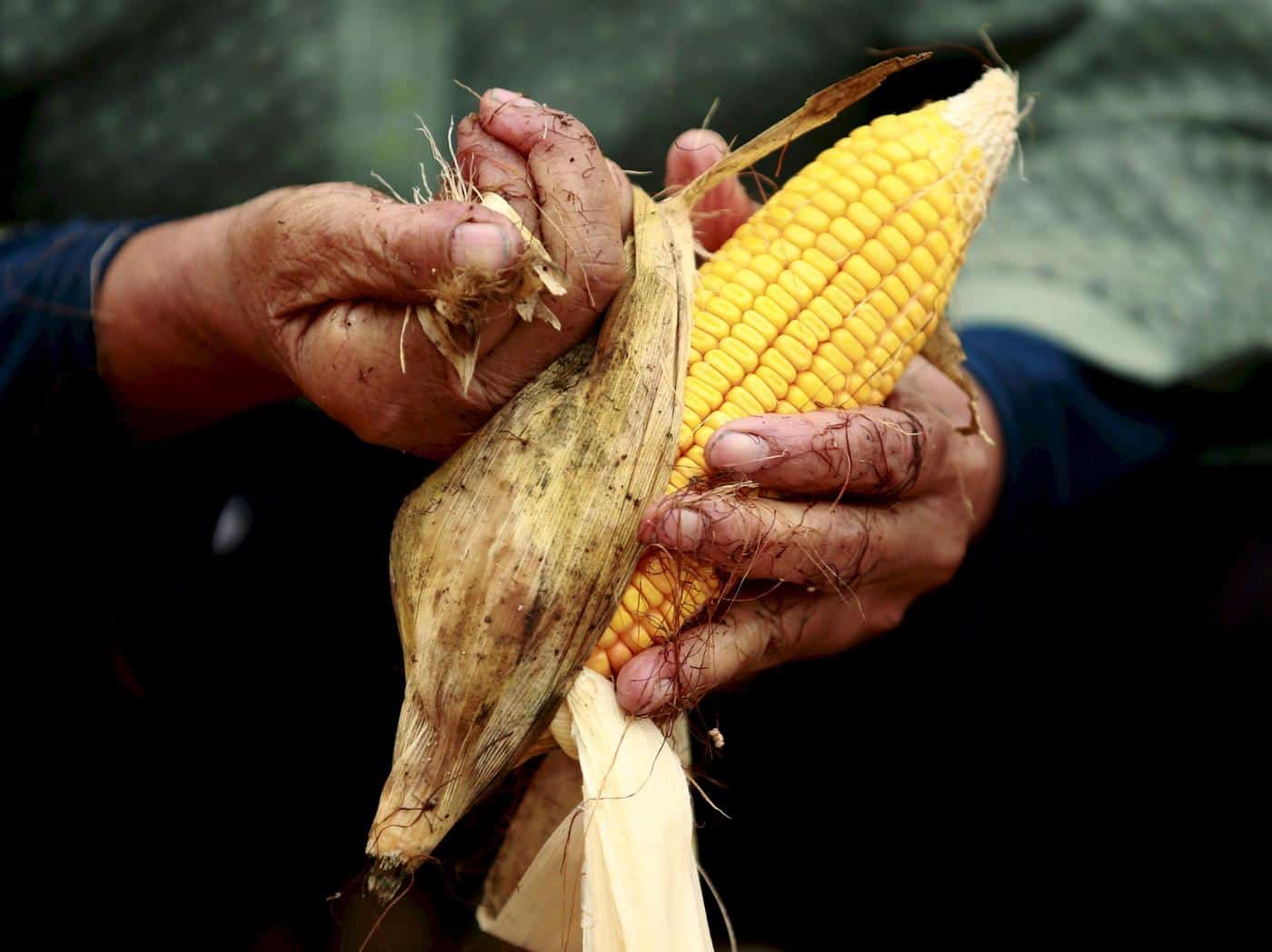
Hands coated in dirt tear the husk off a cob of yellow corn. File photo.

Orinoco Tribune – News and opinion pieces about Venezuela and beyond
From Venezuela and made by Venezuelan Chavistas

Hands coated in dirt tear the husk off a cob of yellow corn. File photo.
In a meeting held at the National Palace in Mexico City last Monday, November 28, President Andrés Manuel López Obrador and a US government delegation headed by the US Secretary of Agriculture Tom Vilsack finalized the topics that will be discussed during the North American Leaders’ Summit to be held in January 2023 in Mexico. The Mexican Secretary of Foreign Affairs Marcelo Ebrard and Secretary of Agriculture and Rural Development Victor Villalobos announced that Mexico’s ban of genetically modified corn will be among the discussed topics.
In response to demands from Mexican farmers and agricultural workers, the president of Mexico signed a legislation in late 2020 imposing a ban on the import of genetically modified corn that will come into effect in 2024, fulfilling one of his electoral promises. However, various sectors in the United States including some congress members have called upon the White House to take Mexico to an arbitration panel, arguing that the ban on GM corn infringes on the US-Mexico-Canada Trade Agreement (USMCA, known as T–MEC in Mexico and CUSMA in Canada). When asked about this issue, Villalobos commented, “That is what we are going to work on.” Meanwhile, Foreign Affairs Secretary Ebrard only stated that it will be among the topics to be addressed at the January summit.
“We are preparing for the January summit, so we are trying to ascertain the most important topics,” Ebrard said to the press. “Topics such as this one, agriculture, are very important because agriculture comprises all of Mexico’s exports and imports, which are points on which we have to agree—one issue is this one [GM corn], among many other issues we are talking about right now.”
He added that the president asked them to work as a team with senior US officials on all the important topics, “and that we should be ready before the summit to present the necessary options or solutions. We are going to work together with Victor [Villalobos] and the Secretariats of Economy, Environment, and Foreign Affairs, and there are probably other issues that I will be mentioning as we identify them.”
Villalobos also stated that a bilateral meeting is expected to be held on these points in two weeks.
Before meeting Vilsack, President López Obrador emphasized during his morning press conference that Mexico will not import GM corn in spite of the pressures coming from various sectors of the United States. “We do not want genetically modified corn for human consumption; we are not going to allow it… This is our policy, and it will continue to be so, but there are ways to reach an agreement,” he said.
Over 1 Million Citizens Flood Mexico City to Celebrate 4 Years of AMLO’s Presidency
More than 300 peasant, indigenous, and environmental organizations of Mexico came together in the national campaign Sin Maíz No Hay País, or “Without corn there is no country” to support the ban on the import of genetically modified corn. These organizations have highlighted the damage that genetically modified crops cause to biodiversity, especially in a country like Mexico, which is one of the most biodiverse countries in the world, and where corn is the staple food.
However, the measure has not been well received by the US, as Mexico’s rejection of genetically modified corn could set a precedent that would affect the US agriculture industry, heavily reliant on GM. According to World Perspectives Inc., the total ban on any type of genetically modified corn in Mexico would incur estimated losses of $3.5-5.5 billion in the US agriculture industry by 2026.
(La Jornada) by Emir Olivares and Néstor Jiménez, with Orinoco Tribune content
Translation: Orinoco Tribune
OT/SC/KZ